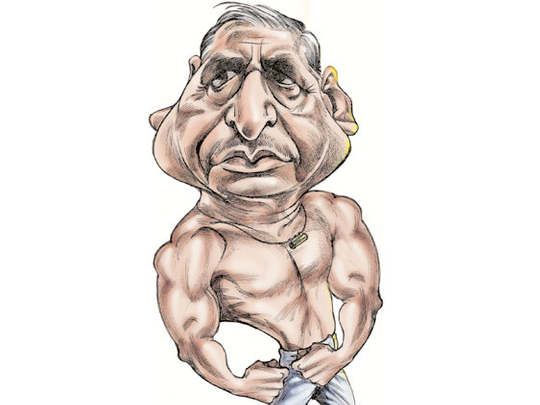
New Delhi: Buoyed by electoral success in their respective states, regional parties have started political posturing to catapult their top leaders and grab the prime minister’s post following 2014 general elections.
The recent opinion poll conducted to coincide with three years in office of the Congress party-led Untied Progressive Alliance (UPA) government (in its second term) has given the regional parties the necessary fillip in this regard.
The survey conducted by English daily Hindustan Times suggested that if elections were to held now, the ruling UPA would bag barely 34 per cent votes compared to 39 per cent to the arch-rival Bharatiya Janata Party-led National Democratic Alliance (NDA).
The survey projected only eight per cent votes to regional parties. However, the fact that neither of the two major alliances may cross the halfway mark on its own, has given rise to hopes for regional — that not only no government can be formed without their active support but also that they may, in the bargain, grab the prime minister’s post.
The first off the block is Samajwadi Party, which grabbed power with a massive majority in India’s most populous and politically crucial Uttar Pradesh barely two months back. The party, while warming up to the Congress party, has finalised its plans to project its founder Mulayam Singh Yadav as the next prime ministerial candidate.
The party’s plans are simple. Since Samajwadi Party has limited pockets of influence outside Uttar Pradesh, it would concentrate on Uttar Pradesh, hoping to win 60-65 out of the 80 Lok Sabha seats from the state, a number it feels should be good enough to propel Yadav as the next prime minister.
Yadav had recently spurned the offer to become the Uttar Pradesh chief minister and opted to nominate his son Akhilesh Yadav in the post, primarily with an eye on finding a greater role for himself in national politics.
Yadav had unsuccessfully tried to resurrect the defunct Third Front ahead of 2009 general elections. This time around, he is making no such effort. Instead, he is trying to get closer to his erstwhile friends, with socialist backgrounds, as well as the Communists, to support his case.
“Our plan is simple. If we can get even 60 seats, which we should, then getting the support of another 60-70 lawmakers, who are neither with UPA or NDA, would not be difficult. With about 125 MPs in pocket, the Congress party, which is bound to emerge weaker, would be left with only two choices — either let BJP form the government or accept Netaji (“leader” as Yadav is popularly referred to) as the new prime minister,” explained a Samajwadi Party lawmaker insisting anonymity.
Yadav is already in touch with the West Bengal Chief Minister, Mamata Banerjee, who also heads the Trinamool Congress. Mamata is in an uncomfortable alliance with Congress party and the Samajwadi Party is convinced that she would switch sides the moment any party is in a position to form the government and promise to accept her demands such as interest moratorium on loans taken by West Bengal.
The Bihar Chief Minister, Nitish Kumar, is also said to be harbouring the same dream. There are indications that he may break his existing alliance with the BJP and contest all 40 Lok Sabha seats from Bihar, hoping his Janata Dal (United) wins at least 35 seats.
Their hopes are founded on history when leaders lacking the majority support managed to become prime ministers. Chaudhary Charan Singh walked out of the Janata Party and formed the government with the Congress party’s support in 1979. His government lasted for barely 171 days.
Another Socialist leader Chandrashekhar walked away from the Janata Dal in 1990 and ran the government for 224 days with the Congress party’s help.
H.D. Deve Gowda and Inder Kumar Gujral ran the minority United Front governments for 325 days and 333 days respectively with the Congress party’s help between 1996 and 1998.
The common factor was that the Congress party willingly extended its outside supports to them only to pull them down at a convenient time.
“Times have changed. Netaji is no sitting duck that they can shoot easily. Anyway the trend of late is not to topple governments since voters do not tolerate expensive forced elections. Congress ditched us in Uttar Pradesh and bite the dust. If it does it the centre, it will go down the drain and become a history,” said the Samajwadi Party lawmaker.












